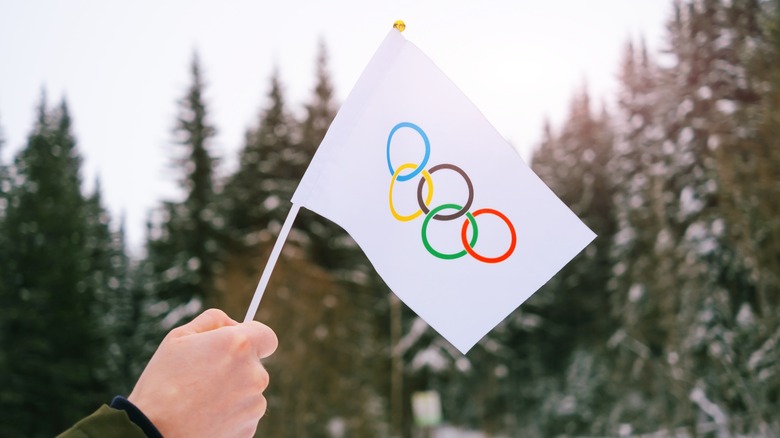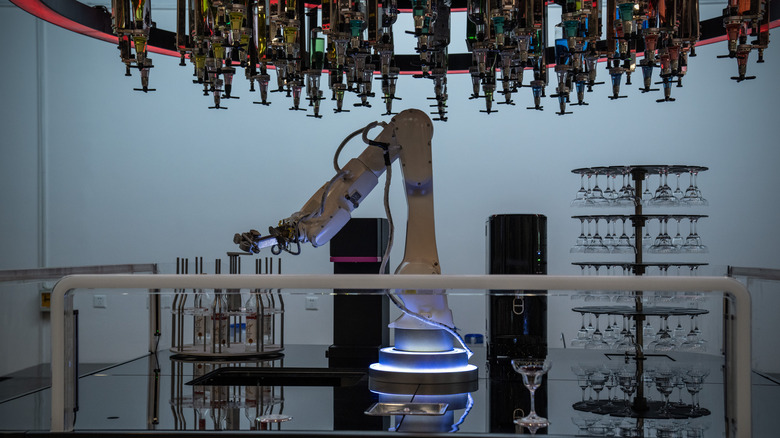Olympic Village Restaurants Have A Unique Approach To Service At This Year's Games
What happens when a country organizes an international sporting event in the midst of a global pandemic and while attempting to pursue a zero-COVID policy? They rely on technology, of course, which is why diners at the media center in China's Olympic Village are having all their food and beverage needs catered to with the help of artificial intelligence and robotics (via Xinhua Global Service).
A robot chef, whose cooking programs were developed in part by a famous chef in Guangdong, is in charge of turning out both Chinese and Western meals, while another robotic arm delivers orders using a huge claw that takes prepped meals to the table. A third robot arm has been tasked with preparing drinks, although there are still some tasks — like garnishing cocktails — which have been left for human hands to polish up (via Inside Edition).
The food center is not modestly sized by any means. It occupies over 3,600 square meters of space and is meant to hold close to 1,000 occupants. Mr. Zhong, the catering team supervisor for the smart restaurant, says "more than ten" robots were programmed to carry out different tasks, from stir-frying to burger-making, as well as beverage-dispensing. All this, Zhong says, is left in the hands of two people — one to handle the food and the other to manage the computer systems.
Robot chefs will be cooking without certain ingredients
There are human servers in the other restaurants and bars (like those at the hotels) catering to the Olympic athletes and guests to make sure things go smoothly, and Reuters says the staff are kitted out from head to toe in hazmat suits. And while servers have said they feel more protected while wearing the suits, participants have compared the look and feel of hazmat suits and robotic workers to "dystopian fiction."
Back in November of 2021, and before COVID-19's Omicron variant had kicked up, organizers told the China Daily that they had prepared an international menu featuring classics like Beijing roast duck and moo shu pork, as well as vegetarian, halal, and kosher options for the Olympic Village. All told, caterers had been prepared to serve up as many as 678 dishes on rotation. Yan Han, head of dining services for the event, said Chinese dishes would take up to 30% of the menu, while the rest would be Western food, including several types of pizza and spaghetti. One executive chef for the event also said they had been asked to leave out 48 common ingredients — from peppers to bay leaves — so doping tests would not deliver any false positives. The food selections had been pre-approved by the International Olympic Committee.

